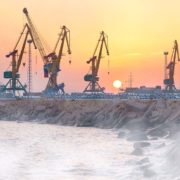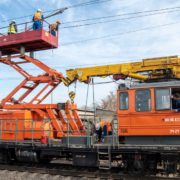Tag Archives | Infrastructure
Transport, Uncategorized, Urban development
 Economics, Industry and trade, Subjects, Transport
Economics, Industry and trade, Subjects, Transport
 Economics, Industry and trade, Private sector development, Subjects, Transport
Economics, Industry and trade, Private sector development, Subjects, Transport
 Governance and public sector management, Transport, Urban development
Governance and public sector management, Transport, Urban development
 Agriculture and natural resources, Infrastructure, Regional cooperation and integration
Agriculture and natural resources, Infrastructure, Regional cooperation and integration
 Finance sector development, Industry and trade, Infrastructure, Regional cooperation and integration
Finance sector development, Industry and trade, Infrastructure, Regional cooperation and integration
 Economics, Education, Finance sector development, Governance and public sector management, Infrastructure
Economics, Education, Finance sector development, Governance and public sector management, Infrastructure

Calling for Quality Infrastructure—Why and How?

Quality infrastructure, backed by strategic planning and innovative financing, can transform developing countries by driving sustainable growth, resilience, and economic potential while addressing global challenges like climate change and funding gaps.
Infrastructure investment key to unlocking emerging Asia-Europe trade corridor

Spanning from the People’s Republic of China through Central Asian countries along the Caspian Sea to Europe, the Trans-Caspian Corridor is an increasingly important channel for transportation and cross-border trade. Considerable financing gaps and other challenges must be addressed to meet its rapidly expanding infrastructure needs.
Infrastructure investment to spur firm performance in Central Asia

Effective infrastructure projects not only construct infrastructure, such as roads, railways, water supply, and electricity, but can boost economic growth in the surrounding region through “spillover effects” (Yoshino, Azhgaliyeva, and Mishra 2021). The infrastructure benefits firms by lowering costs and improving connectivity and the ease of doing business, leading to greater sales and exports.
Don’t be derailed by rights-of-way

The disappointing scale-back of California’s showcase high-speed rail system between San Francisco and Anaheim has many experts asking what lessons can be learned. Similar pushbacks have occurred on other continents: witness the popular resistance to construction of a new superstation as part of Stuttgart’s urban renewal, which escalated into violent demonstrations, delays, and stalemates.
Perspectives on Mekong-Japan cooperation for inclusive growth and mutual benefits

Rapid economic development in recent decades has transformed Southeast Asia and prepared the region to join international production networks, which allow greater exports of manufacturing products, textiles, and other primary high-quality valued added products to the international market. This economic development has been achieved thanks to investments from around the globe into the region as a result of a favorable labor force, connectivity and innovation growth, and regional political stability as driven by the Association of Southeast Asian Nations (ASEAN) vision.
Next generation of quality development and investment in the new Pacific trade pact

Earlier this month, the Pacific trade pact was reborn in Santiago as the 11-nation Comprehensive and Progressive Agreement for Trans-Pacific Partnership. While the headlines have been dominated by the absence of the United States and the level of trade gains each nation hopes to enjoy, let’s focus here on three less-remarked-upon sections of this revised treaty among Australia, Brunei Darussalam, Canada, Chile, Japan, Malaysia, Mexico, New Zealand, Peru, Singapore, and Viet Nam (the TPP11).
Kick-start private infrastructure with future tax-sharing bonds

Everybody from President Trump to the Global Infrastructure Forum is trying to think of innovative ways to attract long-term private and institutional investors to pay for the huge and largely unmet demand for new highways, railways, and dams. Promising ideas, including guarantees or gap funding, the concessional blending of finance, and bankability enhancements, have been tried but are not enough to convince overseas pension schemes or high net worth individuals to invest their idling funds in worthwhile projects, especially in emerging economies with untried issuers (Regan, 2017).


Search
Subscribe / Connect to Asia Pathways
Subjects
- Accelerating Progress in Gender Equality
- Addressing Remaining Poverty and Reducing Inequality
- Agriculture and natural resources
- Capacity development
- Climate change
- Economics
- Education
- Energy
- Environment
- Finance and Innovation
- Finance sector development
- Gender
- Globalization and Economic Stability
- Governance and public sector management
- Health
- Industry and trade
- Information and Communications Technology
- Infrastructure
- Making Cities More Livable
- Miscellaneous
- Population
- Poverty
- Private sector development
- Regional cooperation and integration
- Sanitation
- Social development and protection
- Strengthening Governance and Institutional Capacity
- Subjects
- Transport
- Uncategorized
- Urban development
- Video Blog
- Water
Recent Posts
- From Crisis to Resilience: The Evolution of the Banking Sector in Asia and the Pacific
- Tariffs on the Table: What Could Be Asia’s Next Move?
- Investing in Childcare a Win for Women and the Economy
- Flush and Flourish: Upgraded Toilets Can Transform Lives in Rural Asia
- New Ways for Climate Finance and Development in Asia and the Pacific




Recent Comments